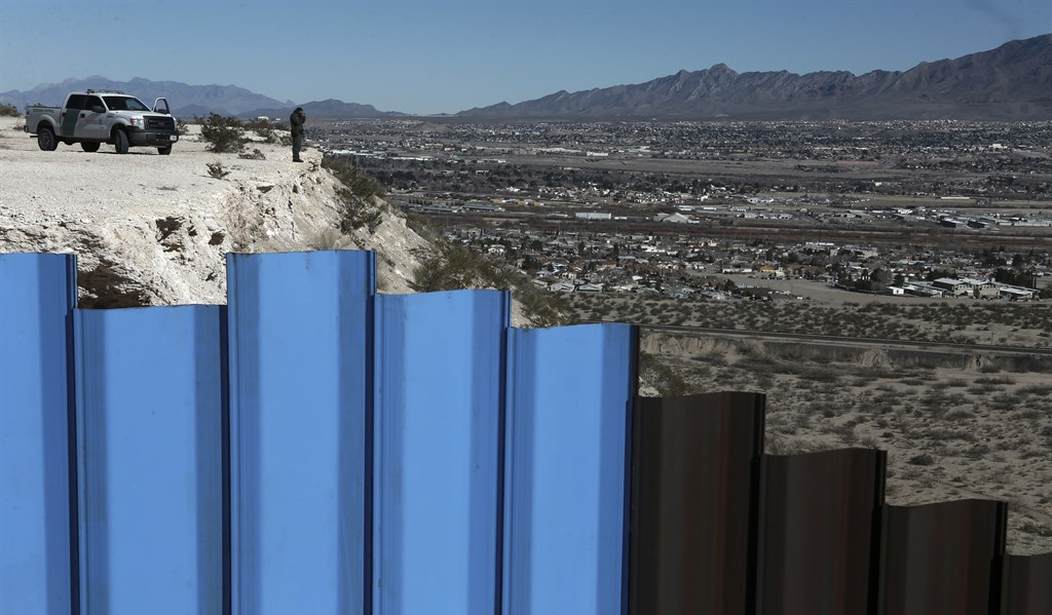By all means, build a wall on the border, but don't make Mexico pay for it.
It was a great -- and by great I mean effective, not noble or heroic-- applause line from then-candidate Trump on the campaign trail. Audiences loved it, particularly the call-and-response. Trump: "Who's going to pay for it?" The crowd: "MEXICO!"
But the campaign is over and so is fun time. If the wall is worth having, it's worth paying for.
On Thursday morning, Mexican President Enrique Pena Nieto abruptly cancelled his planned meeting with Donald Trump because the American president gave him no choice.
Nieto was willing to go ahead with the meeting, despite the fact Trump had signed an executive order commencing work on a wall. But then in an interview Trump said that if Nieto wasn't willing to commit Mexico to paying for the wall, he shouldn't bother coming. What else could Nieto do?
The Greek historian Thucydides argued that countries go to war for three reasons: honor, fear and interest. He put honor first, and yet that is probably the least appreciated aspect of foreign policy today. Historian Donald Kagan, in his essay "Honor, Interest, Nation-State," recounts how since antiquity, nations have put honor ahead of interest. "For the last 2,500 years, at least, states have usually conducted their affairs and have often gone to war for reasons that would not pass the test of 'vital national interests' posed by modern students of politics."
"On countless occasions," he continues, "states have acted to defend or foster a collection of beliefs and feelings that ran counter to their practical interests and have placed their security at risk, persisting in their course even when the costs were high and the danger was evident."
Americans instinctively understand this when our own honor is at stake. The rallying cry during the Barbary Wars, "Millions for defense, but not one cent for tribute," has almost become part of the national creed. I am no fan of Karl Marx, but he was surely right when he observed that "shame is a kind of anger turned in on itself. And if a whole nation were to feel ashamed it would be like a lion recoiling in order to spring."
Recommended
Both the first and second world wars cannot be properly understood without taking the role national honor plays in foreign affairs. Similarly, Vladimir Putin's constant testing of the West only makes sense when you take into account the despot's core conviction that the fall of the Soviet Union was a blow to Russian prestige and honor.
Now, I don't think a war with Mexico is in the cards, even if the Trump administration were to figure out a way to get Mexico to foot the bill for a border wall. But forcing them to pay for it would be a punitive and gratuitous act of humiliation. Expecting a democratically elected president of a sovereign and allied nation to, in effect, grovel to the United States is the equivalent of asking him to drink poison.
Across Mexico, the wall itself is despised as an insult. That's too bad. And while I don't think we need some visible-from-space Great Wall of American Greatness stretching from the Atlantic to the Pacific, America has every right to secure its borders in any way it sees fit. But asking Mexico to pay for it literally adds injury to insult. In economic terms there's little difference between asking them to pay for it and forcing them to build it themselves.
No wonder virtually every sector of Mexican society sees the demand as an "announcement of a humiliation," in the words of Mexican political analyst Jesus Silva-Herzog Marquez. The former head of the Mexican Party of the Democratic Revolution (PRD) described the demand as spitting in the face of Agustin Basave Benitez, the foreign minister who set up the presidential meeting.
President Trump insists that he wants a good relationship with Mexico and that a wall would be a "win-win" for the two countries. Maybe. But Trump's win-win calculus is based upon an analysis of simple national interests. A wall would, Trump argues, curtail drug-trafficking and stop the flow of Central American immigrants through Mexico.
That's the case Trump wanted to make at his presidential meeting. And, again, he might be right. But nations don't just act on their interests; they act on their honor. And shouting "You'll pay!" is a surefire way of guaranteeing no one will hear anything else.

























Join the conversation as a VIP Member